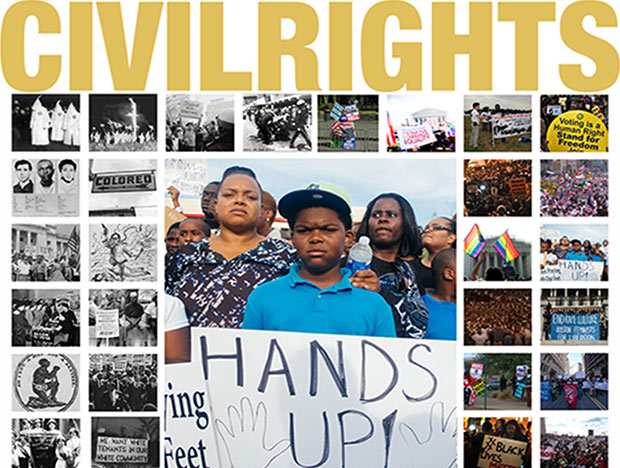Senior Associate Dean Madhavi Sunder and I are at Duke Law School today. We are speaking in the symposium, "The Present and Future of Civil Rights Movements: Race and Reform in 21st Century America" by the Center on Law, Race and Politics.
Dean Sunder and I are panelists in the first plenary session of the day, titled, "Reflections on the Present and Future of Civil Rights Movements." The panel is being moderated by our former King Hall colleague Angela Onwuachi-Willig, who's now at the University of Iowa College of Law.
Some of the panels are being live-streamed. Visit the Center's symposium website to view!
Here are the symposium poster and description:

In 2014, the nation marked the fiftieth anniversary of the March on Washington, the Civil Rights Act of 1964, and Freedom Summer. In 2015, we recognized the fiftieth anniversary of the Voting Rights Act of 1965. As we move forward in the 21st century, however, America finds itself at the beginning of a new era defined by its own set of civil rights struggles. The battles of 2015 are in some ways markedly different from those of the 1950s and 1960s, as "whites only" signs and overt displays of societally condoned racism are mostly relegated to history. However, what remains is a country full of disparately impacted populations, with people of color facing disadvantages at home, at work, at school, and in the justice system, all in the context of a society that prides itself on its imagined march towards post-racial colorblindness.
A shifting landscape, however, simply means that the civil rights movements of the 21st century must also shift in line with modern realities. "The Present and Future of Civil Rights Movements: Race and Reform in 21st Century America" presents an opportunity for scholars, teachers, practitioners, and activists to engage with each other as they discuss their unique perspectives on inequalities throughout different facets of modern America. In exploring today's civil rights struggles, including the disproportionate imprisonment of populations of color, decreased access to housing, and persistent roadblocks to basic civic freedoms such as voting, this conference will provide an opportunity for those who recognize the persistent impact of systematic racism to reflect on the past and present in order to better inform the future.